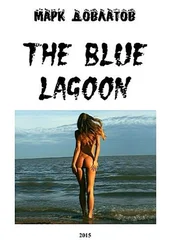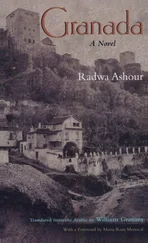I was about to ask him, ‘Who is Siham?’
I must have been quiet a long time, for he thought the line had been disconnected. ‘Hello? Hello?’ he said.
‘Siham Sabri?’
‘Yes.’
‘When?’
‘Three days ago. Her obituary appeared in yesterday’s Al-Ahram .’
‘Was it suicide?’
‘I don’t know.’
‘What does her family say?’
‘They’re saying she was struck by a car. We want to organise a ceremony for her. We want to publish a collective obituary in the newspaper in all our names, and we want…’
I rang off.
I went back to the previous day’s newspaper. The announcement appeared at the top of the obituary page, in the third column from the right.
Siham died on Thursday the thirteenth of March 2003, corresponding to the tenth of Muharram in the year 1424 of the Islamic calendar. She was struck by a car in a place not very far from her home near the flyover exit to Orouba Street, which leads to the airport. Was she walking along distractedly when she crossed the road — was it just one of those accidents, like so many that preceded it, brought about by Lady Fortuna when she chances to spin her wheel at random? Or was Siham ill, and unaware that she was crossing a busy thoroughfare on which the cars hurtled along too fast to stop easily should a driver be surprised by a woman in the middle of the road? Or did she dash into the path of a car, having decided to die on that particular day? Had she wanted her death to take place on Ashoura, or had she specifically wanted this moment to pass in silence, unnoticed by anyone amid the violence and turmoil, that her disappearance might itself vanish behind the collective fear of an impending invasion? Or had she chosen to anticipate the terror by her death because, though she had endured illness and pain, she could not face what was coming?
She was struck by a car — that much her family confirmed. How and why? I don’t know.
In three days the news of her death would settle into some secret place — buried, invisible, or erased — where I would not see it or stumble across it. The air strikes on Baghdad, and the attack on Iraq by ground forces, began. Then came a telephone call at ten o’clock in the morning: ‘Two streets away from your house there’s a battle going on between students and security forces. The students are trying to reach the American Embassy, but the security forces have surrounded them and are beating them up. Some have been wounded — we’re going to Tahrir.’ A belated and hopeless effort to protest — so be it. Nadeem said he would go with me to the square. Hamdiya tried to dissuade him, then decided to accompany us.
We remained in Tahrir Square from one in the afternoon until eleven in the evening; the security forces left us alone to hold our demonstration there, interfering only when some protesters made renewed attempts to get to the two embassies — the British and the American — in Garden City. At that point fierce battles were waged with truncheons, tear gas, and fire-hoses on the part of security, and on the people’s part the usual weaponry: such stones as were to hand. At eleven o’clock, the number of protesters dwindled, while that of the soldiers encircling the square increased. I went home with Hamdiya, but Nadeem went with his mates to a coffeehouse in Bab al-Louk, a few metres from Tahrir Square. I wanted to go home to listen to the news, because even while standing in the square or walking through it or chanting or talking to some of my old comrades, inside me the thought kept repeating itself ceaselessly that the event taking place there was far from a demonstration consisting of twenty or thirty thousand: merely a voice on the sideline, it would change nothing in the greater scheme of things.
I sat up until dawn, watching the scenes of battle being broadcast live on television via satellite. When I awoke at noon, Nadeem was not at home. Hamdiya said he had gone to Friday prayers at Al-Azhar Mosque; I guessed that he was going to join the demonstration that would follow the prayers.
Hamdiya said, ‘Today is Mother’s Day. Nadeem forgot to tell me “Happy Mother’s Day”. Nadir didn’t ring, either.’
I was about to scold her for her foolishness, but I didn’t. I said, ‘Happy Mother’s Day, Hamdiya — Happy Mother’s Day three times: from me and from each of the boys until they give you their wishes in person!’
I made myself a cup of tea and then sat down by the telephone. I looked at my watch, with its hands creeping toward one-thirty. All at once I stood up as if I had an appointment, and got dressed. I told Hamdiya, ‘I won’t be late — an hour or two at most, and I’ll be back. Nadeem will have come home and we’ll have lunch together.’
I walked to Kasr al-Aini Street and headed from there to Tahrir Square. The square was peaceful, cars streaming through it as usual, although greater numbers of security vehicles had been stationed there of late. I turned right on Tahrir Street, making for Bab al-Louk Square, then went left toward Talat Harb Square. As soon as I got to Sabri Abu Alam Street I took note of the dense ring of soldiers blocking access to the square. I could hear, but not see, the large demonstration in Kasr al-Nil Street, apparently coming from the direction of Ataba, and Opera Square. Loud chanting. I tried to get closer, but the soldiers told me to back off. I moved aside, off the pavement, with a throng of pedestrians — they, too, were concerned about the demonstration and the invasion of Iraq.
The demonstrators proceeded toward Tahrir from the direction of Mahmoud Bassiouney Street or Kasr al-Nil Street. The security forces opened up the blockade and allowed us to move in the direction of the square. The two streets I had speculated the demonstrators were coming from — from one of them, that is — were still closed off. I reached the square, then turned left into Talat Harb Street. At the door of the Café Riche I saw one of my father’s colleagues in a wheelchair and his wife standing next to him. I greeted them. The woman smiled at me, and the man wept. Perhaps he had been weeping before he saw me. Others were standing near him on the pavement. Then an officer came and ordered everyone to disperse. He said, ‘Standing here is prohibited.’ The woman pushed her husband’s wheelchair, and I moved toward Tahrir. Before I reached the next intersection — the junction of Al-Bustan and Talat Harb Streets — I saw a row of security vehicles on the opposite side of the street from the Nasserist party headquarters, and I noticed the ground was wet, that there was in fact a great deal of water, along with a residue of stones — large ones, small ones, crumbled ones. Then I saw the dogs: big dogs, and with each dog a special guard holding it leashed by an iron chain. I carried on in the direction of the square and found the way to it blocked by a circle of helmets and truncheons. I retraced my steps to Al-Bustan Street. Traces of battle were in evidence there: stones on the ground, and water. My heart raced strangely, and I leaned against a car. I took a deep breath, then tried to breathe regularly. Suddenly I said to myself that something dreadful must have happened to Nadeem. I began to run.
How could I run, when moments before I had felt as if I was about to faint? How can I have paid no attention to the fact that any of the officers might have considered my running a sign that I was a demonstrator who should be arrested? And what route did I take home from Bab al-Louk Square? Falaki Street, or Mansour Street, or else I penetrated the neighbourhood as far as Noubar Street and went by a circuitous route that took me to Kasr al-Aini Street and home from there.
‘Where is Nadeem?’
Hamdiya said, ‘He didn’t mention anything about having lunch with his friends. He’s late!’
Читать дальше











